
The Best Time to Visit Lhasa
Lhasa is the capital city and center of the regional administration for the Tibet Autonomous Region. The city is located on the banks of the Kyi River in the south-central area of the Tibetan plateau. It is one of the largest tributaries of the Yarlung Zangbo River, also known as the Brahmaputra. The city is at an altitude of 3,656 meters above sea level. It is the world’s highest capital city and the center of the Tibetan culture and religion. Every Tibetans in Kham and Amdo visit Lhasa once in a lifetime.
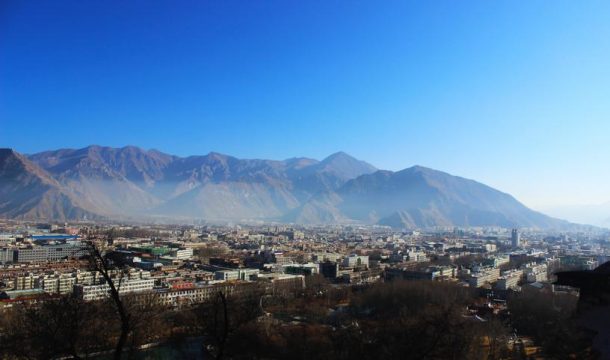
Lhasa City, Tibet
The center of the Tibetan Empire for more than 300 years and the heart of the Tibetan Buddhist religion for more than a millennium. Lhasa is a city of delights and wonders that will amaze and astound you. Literally meaning “place of the gods”, the city is also known as the “City of Sunshine”, and gets more than 8 hours of sunshine per day on average throughout the year. The best time to visit Lhasa is in summer.
Table of Contents
Best Time to Visit Lhasa
Traveling to Lhasa can be done at any time of the year, from April to February (Tibet is normally closed to international travelers in February and March for Losar, the Tibetan New Year). And when to go largely depends on your own personal tastes and what you want to do while you are there. Different seasons have different attractions in Tibet, even in the coldest month of January, travel to Lhasa is easily possible. It is not as cold as you may think. From April to the end of January, Lhasa is a city that is filled with life and spirituality, with the winter months being one of the best times to experience Tibetan Buddhism at its most devout.
Shoulder Seasons – Spring and Autumn
Spring and autumn are normally the best months to travel to Lhasa for the clearer skies and best views. If trekking is your thing, then there is no better time of year to do it. With almost no rainfall in spring and autumn and temperatures that are mild to warm. The trekking from Ganden Monastery to Samye Monastery or taking the heritage trail around the foothills of the Nyenchen Tanglha Mountains around Lhasa is best done at these times of the year. You can also take a few days to visit Lake Namtso, in Damxung County on the boundary with Nagqu Prefecture. Where you can take a leisurely stroll around the lake and visit the monasteries that lie on its shores.
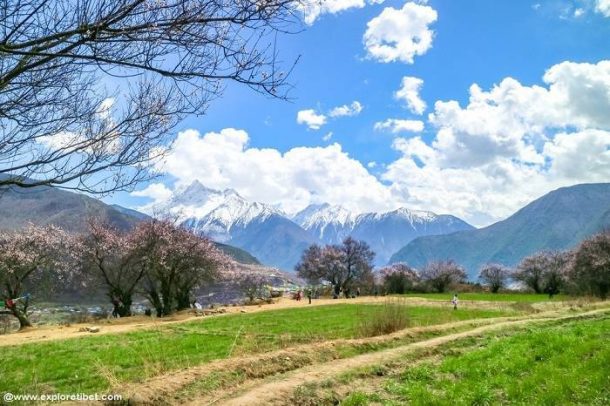
Tibet in Spring
Peak Season – Summer
Summer is the peak tourist season in Tibet, and in Lhasa. It is the most popular time of year as well. Summer is warmer than the rest of the year, with higher temperatures that can reach as high as 23-25 degrees during the daytime. Nights can still be a little cold but are manageable with a warm sweater to wear. Summer is also the monsoon season and can be a little wetter than the west and north of Tibet. Though it is not as wet as the eastern areas of Nyingchi. Monsoon rains normally fall in the late evenings and overnight, though, leaving the daytimes mostly dry and suitable for touring the sights of this stunning capital. However, best to pack a rain mac while you are out and about, just in case. Weather in Tibet can be a little unpredictable at times.
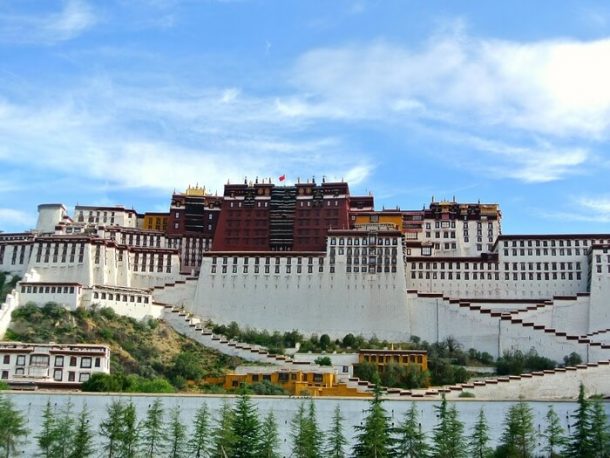
Potala Palace in Summer
One of the main concerns when traveling to Lhasa in the summer months is the huge volume of tourists that travel there from July to September. The busiest period of the year, the city is packed almost to capacity with international tourists and tour buses from China converging on this ancient capital. Summer has become so busy that visitors to the Potala Palace are now restricted to a one-hour tour. This was done to lower the number of people in the palace at any given time to restrict potential damage, and to allow as many people as possible to visit the palace in a single day. If crowds are not to your liking, then you may want to avoid traveling in summer.
Low Season – Winter
Winter is normally considered to be too cold to visit Tibet by many people, though they are misguided in their beliefs. While the temperature in some parts of Tibet can get to well below freezing at night, and not even get above freezing during the day, in Lhasa. The temperatures are rarely that low during the daytime, and even at night do not get too far below zero. Snowfall in Lhasa normally occurs in late January and February, which means that there is little to worry about in terms of getting snowed in.
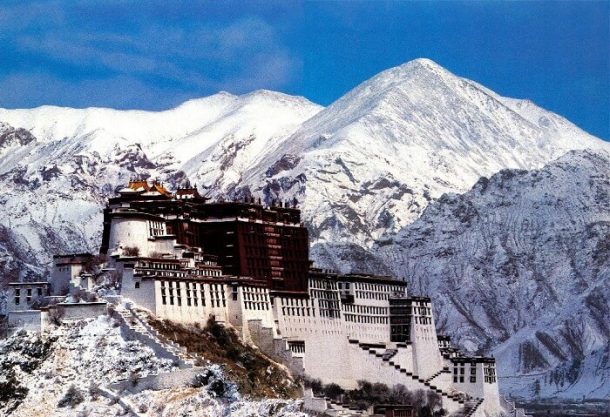
Potala Palace in winter
Winter is also the lowest season for tourism. There are very few tourists that are prepared to travel to the plateau in late December and January. This means that many of the hotels and guesthouses offer off-peak discounts to attract the tourists that are wise enough to know that winter in Lhasa is an amazing time of year. Discounts are also available on the flights and trains to Tibet. As well as many of the attractions offering lower entry fees in the winter months. A great time to travel for budget travelers, Tibet is the ideal winter getaway.
Travel Documents Needed for Visiting Lhasa
There are a number of travel permits that you need when traveling to Tibet, which cover the different prefectures of the region. However, if you are only visiting Lhasa, then that number is reduced to just one. Aside from your Chinese Entry Visa, which you will need to get into China from your home country before traveling to Tibet. The only permit you will need is the Tibet Travel Permit. It is the main travel permit for entering and traveling around the region.
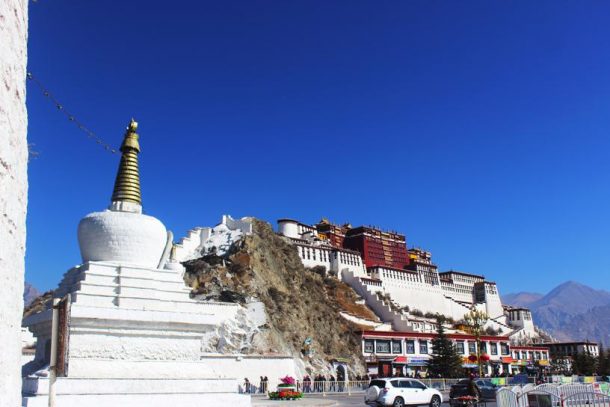
Potala Palace in Lhasa
All the international travelers required the Tibet Travel Permit to travel to Tibet. It must be obtained by your tour operator before you travel. As you have to book a pre-arranged tour with a registered tour operator in order to travel in Tibet. Once you booked your tour with them. They will arrange your Tibet Travel Permit. All they need to obtain it is a scanned copy of your passport with visa pages. It takes around 15-20 days to process. They will forward the approved to your hotel in China ready for your trip.
Since you will not be traveling outside Lhasa prefecture area, the Tibet Travel Permit covers your entire tour. However, if you are traveling to Lhasa from Nepal, whether by flight or overland. You will need all the required permits for travel in Tibet outside Lhasa, including the Alien’s Travel Permit, the Restricted Areas Permit, and the Frontier Pass. This makes traveling from mainland China to Lhasa the better and simpler option.
Recent Posts
Exploring the Beauty of Tibetan Handicraft
The Ultimate Guide to Tibet Tours, Travel, and Trekking Adventures
How to Explore Tibetan Culture
All Categories
- About Tibet
- book a Tibet tour
- Buddhism Practice
- Budget Tour
- China-Tibet Train
- Customized Tibet tour
- Historical Sites
- Hot Springs in Tibet
- News
- Photography in Tibet
- Tibet attraction
- Tibet Group Visa
- Tibet Motorcycle Tour
- Tibet Small Group Tours
- Tibet Tours and Tibetan Tour Guide
- Tibet Train
- Tibet Travel FAQs
- Tibet Travel Information
- Tibet Travel News
- Tibet Travel Permit Update
- Tibet Travel Prices Rises
- Tibet Trek
- Tibet Trekking Tour
- Tibet weather and climate
- Tibet Wildlife animals
- Tibet Winter Tour
- Tibetan Buddhism
- Tibetan Cultural Features
- Tibetan Culture and Poeple
- Tibetan Festivals
- What to see in Tibet



